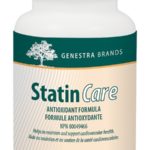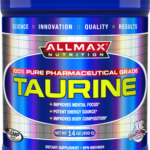Cardiovasular disorders such as hypertension and high cholestrol are directly related to decades of eating foods that have low nutrient value such as processed foods and engaging in less than ideal lifestyles. Many people are unaware of their declining cardiovascular status until they are diagnosed. Common cardiovascular complaints include chest discomfort, shortness of breath, edema and fatigue. Despite the harm typically done to their health for so many years there is still much hope for recovery when they are finally motivated to make changes .
[bsf-info-box icon_type=”selector” icon=”Defaults-heart” img_width=”48″ icon_size=”26″ icon_color=”#0a84ad” icon_style=”none” icon_color_bg=”#ffffff” icon_color_border=”#333333″ icon_border_size=”1″ icon_border_radius=”500″ icon_border_spacing=”50″ read_more=”none” read_text=”Read More” hover_effect=”style_1″ pos=”default” title=”Want to learn more about some dietary modifications and supplements? ” icon_animation=”pulse”]Attend one of our seminar lectures with our Nutritionist at the South location on Saturday March 12 and or Sunday March 13th at the north location. Pre-booking is required with a minimum product purchase order of $50 dollars.
Contact Us to Register[/bsf-info-box]The following statistics were obtained from The Heart and Stroke Foundation of Canada.
Nine in ten Canadians (24 million) have at least one risk factor for heart disease and stroke.
These factors include:
- Eating less than 5 servings of vegetables and fruit a day
- Smoking
- Physical inactivity
- Overweight or obesity
- High blood pressure
- Diabetes
- Stress
Maintaining five or more healthy behaviours (not smoking; maintaining a healthy weight, regular physical activity, eating a healthy diet; and keeping high blood pressure, diabetes and cholesterol levels in control) is associated with an 88 per cent reduction in the risk of death from heart disease or stroke.
Vegetable and fruit consumption
60% of adult Canadians (12 yr +) do not consume five or more servings of vegetables and fruit each day.
Insufficient consumption of vegetables and fruit is one of the major risk factors of heart disease and stroke.
Eating 5 or more servings of vegetables and fruit a day can reduce the risk of heart disease and stroke by about 20 percent.
Eating 4 or more servings of vegetables and fruit daily, can add more than two years to your life.
Sugar
In Canada, it is estimated that more than 13 per cent of our total daily calories come from added sugars. This estimate is conservative as it does not include sugars from fruit juice, honey etc.
Sugar-loaded beverages are the single greatest contributor of sugar in the Canadian diet. One can of soda contains 40 grams, or 10 teaspoons of sugar. That is 85 per cent of an adult’s added sugar intake limit for the day.
Excess sugar consumption is associated with adverse health effects including heart disease, stroke, obesity, diabetes, high blood cholesteroll, cancer, and dental caries (cavities).
Individuals who consume greater than or equal to 10% but less than 25% of total energy (calories) from added sugar have a 30% higher risk of death from heart disease or stroke when compared to those who consume less than 10%. For those who consume 25% or more of calories from added sugar, the risk is nearly tripled.
Sodium
On average, adult Canadians consume about 3,400 mg (roughly 1 ½ teaspoons) of sodium per day. This is significantly above the level recommended as the upper tolerable limit for health, which is 2,300 mg per day (approximately 1 teaspoon).
Most of the sodium Canadians consume (77%) comes from processed foods sold in grocery stores and food service outlets. Only about 11% is added during preparation or at the table, with the remainder occurring naturally in foods.
Excess sodium consumption increases the risk of high blood pressure, heart disease and stroke.
Tobacco and smoking
16% of Canadians (approx. 4.4 million people) smoke.
Smoking is responsible for close to 15% of all heart disease and stroke deaths in Canada In 2002, 10,853 Canadians died from heart disease and stroke as a result of tobacco use and second-hand smoke.
Smoking triples the risk of dying from heart disease and stroke in middle-aged men and women.
Choosing not to smoke can add more than two years to your life.
Overweight and obesity
62%, or over 3 in 5 of Canadian adults are overweight or obese.
The prevalence of diabetes, hypertension and heart disease increases with increasing Body Mass Index (BMI: a ratio of height and weight).
High blood pressure (hypertension)
Six million Canadian adults, or one in five, have high blood pressure.
1 in 6 Canadians (762,000 individuals) with high blood pressure are unaware of their condition.
High blood pressure is a significant risk factor for stroke and if left untreated can lead to coronary artery disease, dementia, heart and kidney failure and other chronic diseases.
If high blood pressure was eliminated, there would be 35% fewer cases of stroke and 18% fewer heart attacks.
Physical activity
Only 15% of adults (17% of men and 14% of women), accumulate the recommended 150 minutes per week of moderate- to vigorous-intensity physical activity.
Getting 150 minutes of moderate- to vigorous-intensity activity per week reduces the risk of heart disease, stroke, high blood pressure and diabetes by 30 percent.
10,000 steps daily, which is considered achieving the recommended amount of moderate- to vigorous-intensity physical activity, can add more than 2 years to your life.
The majority of patients with cardiovascular disease are more often than not prescribed an aspirin along with a statin drug, but there is so much more that can be done to complement medical care. Adopting new eating and lifestyle habits and taking specific nutritional supplements will improve prognosis and stabilizing the risk factors.
Our clinical products for the heart:
-

E complex 1:1
-

Magnesium Complex
-

MitoVive Orange
-

Niatain
-

NutraGems CoQ10 300
-

OmegaGenics® EPA-DHA 720
This product has multiple variants. The options may be chosen on the product page -

StatinCare
-

Super EFA
-

Super EFA Liquid Plus CoQ10
-

Taurine





